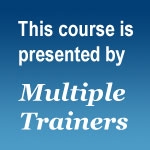
Search Results: overwhelm
-
Trainer Tip: It's impossible to value other people’s needs and remain compassionate if we simultaneously harbor judgments. If we're willing to shift this behavior we can translate our judgments into acknowledging how something affects us. Once I got into the habit of this, my judgments began to subside dramatically. It became easy to love people and feel compassion for them, and I experienced a freedom I had never known before.
-
Trainer Tip: Instead of trying for perfection, let’s try safe experimentation: Acknowledge that whenever we try a new behavior, it’s bound to take us a few times before we get it right. Read on for how we can do this. We'll use learning empathy as an example.
-
Trainer Tip: Someone’s strategy for meeting needs may look different from yours, but it doesn’t mean they aren’t meeting them. This can happen when they appear to be messy and disorganized, but from their perspective they have it organized. It's just less apparent to you how they have organized it. Read on for a related anecdote.
-
Trainer Tip: At least once today celebrate yourself and your progress, every step of it. We all have a starting point. No matter where you are in your life, you have made progress. Every mistake, every victory, and every confusing moment can lead you forth and can be something to celebrate.
-
Trainer Tip: The world’s people are consuming more of earth's resources at an astronomical speed. This is a form of violence, of not valuing everyone’s needs. Respect and support everything that lives, including yourself. How you can take less from earth’s resources and replenish more so that earth can flourish? Even if its small, take action today to support earth’s sustainability.
-
Trainer Tip: Are you meeting your needs for exercise? Consider which activities would help you meet your needs for physical and emotional health and fun, rather than focusing on what expert opinion says. If you feel overwhelmed and had a hard time sticking to the program feel free to tweak your program so that you enjoy it more.
-
Trainer Tip: In an efficient group process, clarity is key. Try to only say things if you are clear what you want back from the group. Then ask for what you want so people don’t have to figure it out for you. If someone says something and you’re not sure what he wants back from the group, anyone can assist by saying this: “I’m confused about what you would like from us. Would you help us clarify what kind of a response you’re looking for?”
-
Trainer Tip: Next time someone asks how you're doing, you can check in with yourself and offer an honest answer. It doesn't need to be 15-minute response. You could say, "I’m feeling tired and overwhelmed by this project. I’m sure it'll work out. I’m just worried about it now. How are you?” If you're ready to do that, then you can be honest with yourself. Doing this can help you be present to how you are, and hold your experience as a gift to self and others.
-
Read how an American Buddhist NVC teacher with Jewish roots reflects on how any dehumanization in the Israel-Hamas conflict can be used to justify all kinds of violence that can escalate for generations. With acknowledgment of the complexities, his desire is for us to bring in respect, dignity and peace -- for both Israelis and Palestinians. He emphasizes compassionate advocacy of all humanity amid the ongoing crisis.
-
Hello friends. I’m Roxy Manning. When Mary invited me to write this letter, I could not help but reflect on what has been most alive for me recently… the way many of us will easily help someone else, but fear to ask for help for ourselves. On December 4, I had an operation. My doctor predicted my recovery would take three weeks. As I prepared for the time off, I rushed to complete all of my work and personal commitments. I prepped and froze dishes so I would have things to eat after and arranged meal deliveries. Very few people knew I was having an operation and I reached out to only one person for support after. In hindsight, I was doing everything I could so...
-
This 6-session telecourse recording focuses on supporting people who work with children (e.g. parents, teachers, ministers, etc.) in applying the skills of NVC mediation in conflict situations that involve children.
-
Ask the Trainer: "I just started teaching in a public school and I'm not enjoying the violence that teachers express towards children and their colleagues. However, when I talk about NVC, most people listen but I feel they're either not understanding it or ..."
-
Ask the Trainer: “I would love some clarity about the NVC perspective on the cause of our feelings. It seems to me that my needs may be met or not, but the cause of my painful feelings is my story around the situation.”
-
Trainer Tip: Anger is a prominent call to gain our attention. Mary explains why it's worth heeding that call.
-
- Focus on living from the inside out
- Bring a field of inner kindness to your inner distress
- Attend to your inner experience with compassion
- Cultivate an inner spaciousness of freedom
-
Join Dian Killian and discover the power of imagery and metaphor in deepening your empathy practice. This segment from her 6 session course explores how visualizing sensations, emotions, and needs through metaphorical language can enhance the connection during empathy guessing, particularly in somatic-based approaches.
-
Anger can result in violence or in a movement towards positive change. We can see this happen in the push for racial justice. When you perceive anger as a form of violence your nervous system becomes activated. Your perspective narrows and old conditioning can take over leading to overwhelm, defensiveness, hatred, or violence. Read on for four ways to to respond to our own or others' anger in a way that mobilizes desired change.


















